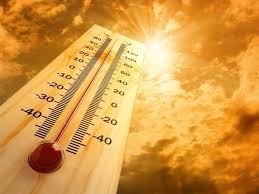- Be Informed
- 911
- Agriculture and Farm Operations
- Air Travelers
- Biological Threats
- Blizzards
- Bomb Threats
- Bus Travelers
- Business Community
- Carbon Monoxide
- Chemical Threats
- Clean Air
- Coping with Emergencies
- Cyber Attacks
- Donations
- Evacuation
- Extreme Cold
- Extreme Heat
- Financial Institutions
- Fires
- Flood Insurance Program
- Flooding
- Flooding - Living Behind a Levee
- Forms of Communication
- General Aviation
- Hail
- High-Rise Buildings
- Hobby Shops
- Home Safety
- Hotels and Motels
- Household Chemicals
- In a Moving Car
- Influenza Pandemics
- Multi-Family Dwellings
- Nuclear Threats
- Power Outages
- Radiation Threats
- Retail Stores
- Shelter In Place
- Storage and Warehouse Facilities
- Suspicious Packages
- Terrorism
- Thunderstorms
- Tornados
- Utilities
- Warning Sirens
- Winter Driving
- Winter Weather
- Be Informed
- 911
- Agriculture and Farm Operations
- Air Travelers
- Biological Threats
- Blizzards
- Bomb Threats
- Bus Travelers
- Business Community
- Carbon Monoxide
- Chemical Threats
- Clean Air
- Coping with Emergencies
- Cyber Attacks
- Donations
- Evacuation
- Extreme Cold
- Extreme Heat
- Financial Institutions
- Fires
- Flood Insurance Program
- Flooding
- Flooding - Living Behind a Levee
- Forms of Communication
- General Aviation
- Hail
- High-Rise Buildings
- Hobby Shops
- Home Safety
- Hotels and Motels
- Household Chemicals
- In a Moving Car
- Influenza Pandemics
- Multi-Family Dwellings
- Nuclear Threats
- Power Outages
- Radiation Threats
- Retail Stores
- Shelter In Place
- Storage and Warehouse Facilities
- Suspicious Packages
- Terrorism
- Thunderstorms
- Tornados
- Utilities
- Warning Sirens
- Winter Driving
- Winter Weather
Extreme Heat
During the summer months, temperatures can reach dangerous levels. With the heat index, temperatures can be particularly hazardous for children, the elderly and those with special needs, and pets. In addition to discomfort and fatigue, extremely high temperatures can cause heat cramps, heat exhaustion, and heat stroke. To protect yourself, your family and your neighbors, please familiarize yourself with the following terms and symptoms

In Extreme Heat
- Stay out of the sun. If you must be in the sun, wear sunscreen (at least SPF 15).
- Avoid overexertion and strenuous outdoor activities.
- Wear lightweight, light-colored, loose-fitting clothes that cover as much skin as possible to prevent sunburn.
- Consume plenty of non-alcoholic, non-caffeinated fluids. Water, diluted juices and electrolyte solutions are best. Stay away from carbonated drinks.
- Avoid alcohol.
- If you are on a fluid-restricted diet or taking diuretics, consult your doctor.
- Stay in the shade or under awnings as much as possible.
- Keep rooms well ventilated with air conditioners and fans. Keep your windows open if you don't have a fan or air conditioning.
- Cool down with periodic cool baths or showers.
- Take advantage of city cooling centers, public pools and air-conditioned stores and malls.
- Never leave children, the elderly, or those who require special care periods of intense summer heat.
- Make a special effort to check on your neighbors during a heat wave, especially if they are seniors, young children, and people with special needs or live alone.
- Seniors and others who may be sensitive to extreme heat should contact friends, neighbors, or relatives periodically throughout the day.
- Seek help if you feel symptoms of heat-related illnesses.
